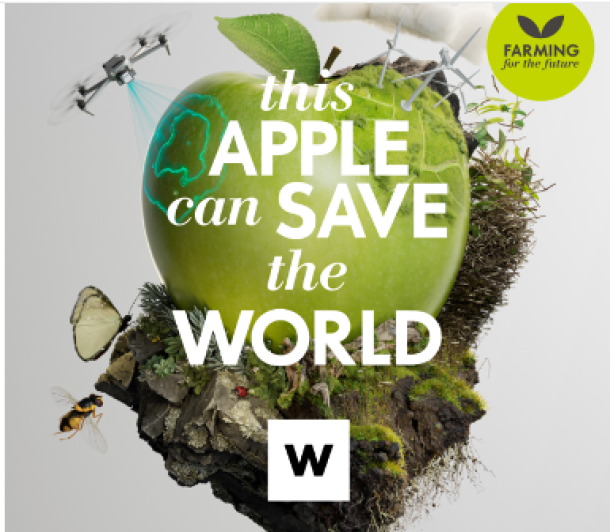Pick n Pay rolls out its lifetime budget reusable bag
Pick n Pay is rolling out its new budget green People n Planet reusable bag nationally after a successful trial with customers earlier this year. The bag is expected to be in all stores by mid-October.
Pick n Pay has partnered with The Coca-Cola Company and Unilever – two companies who are also actively implementing waste reduction initiatives – to sell the first one million green ‘People n Planet’ reusable bags for just R4 per bag.
This will make it one of the lowest priced reusable bag made from recycled plastic in South Africa to date.
The bag’s low price is all the more remarkable given that should it ever break, Pick n Pay will replace it for free.
The green People n Planet Reusable Bag was initially sold for R5 per bag and trialled in 22 stores in February this year to gauge customer willingness to purchase an affordable reusable bag as an alternative to a plastic carrier bag. 11 500 bags were sold during the one-month trial, which resulted in a reduction in plastic bag sales across the pilot stores when compared to the same period last year.
Suzanne Ackerman-Berman, transformation director at Pick n Pay, says that this demonstrates that customers are willing to make responsible choices if the right options are available to them at the right price.
Soon to be available in over 700 stores, the new budget reusable bag option will help more customers refuse the plastic bag and re-use an alternative.
Made from green recycled PET bottles, the reusable bag promotes the circular economy by turning post-consumer primary packaging (plastic bottles) into secondary packaging (reusable bags). “Customers who recycle their green plastic bottles and then purchase the new green bag will help keep a product in use and out of the environment,” says Ackerman-Berman.
Through the partnership with The Coca-Cola Company and Unilever to make one million bags, 43.2 tonnes of green recycled PET will be repurposed to make the bags – this equates to the weight of approximately two million 500ml plastic bottles.
Bruno Pietracci, President of Coca-Cola Southern & East Africa, says that this partnership helps ensure their green PET bottles are given a second life. “These reusable bags are part of our ambitious World Without Waste strategy through which we aim to promote a circular economy by collecting and recycling a bottle for every one we sell by 2030.”
Luc-Olivier Marquet, the CEO for Unilever South Africa, says that partnerships like this is a testimony of their commitment to reduce the amount of plastic in landfills and the environment. “We want to help build an inclusive circular economy, in which we not only use less plastic, but also ensure the plastic we do use can be reused and recycled. As a manufacturer, we have committed that by 2025, we will ensure that 100% of our packaging will be 100% recyclable, reusable or compostable and will include a minimum of 25% recycled material. An example of this is our Sunlight liquid bottle, which is made from 100% recycled PET and is fully recyclable. We would like to encourage consumers to make use of reusable shopping bags and choose packaging that includes recycled material. These small acts add up to make a big difference.”
Pick n Pay hopes the new reusable bag will create more awareness amongst customers that plastic waste can be repurposed if it is recycled. “The new bag will include a QR code that customers can scan to see the full lifecycle of the plastic bottle – from the time the bottle is sold to making it into a green Pick n Pay People n Planet reusable bag,” says Ackerman-Berman.
BOTTLE TO BAG PROCESS
Each green People n Plant reusable bag is manufactured from approximately two green PET bottles.
The following infographic shows the process through which green PET bottles are turned into reusable bags. This is an entirely South African process using local post-consumer PET bottles combined with local collection and recycling.
- PET Bottles manufactured
PET (polyethylene terephthalate), is a form of polyester and is widely used in the manufacturing of packaging. PET is moulded or blown into plastic bottle containers for beverages, food packaging, personal care products, and many other products. Recycled green PET (rPET) can be used to manufacture a variety of new products, including polyester textiles, automotive parts, and strapping.
- Sold by retailers
Close to 70% of virgin PET is used in South Africa to produce beverage bottles. This includes carbonated soft drinks, milk, bottled water, juice, energy and sports drinks. PET is labelled with the number 1 code, which is usually displayed on the label of the product or on the bottom of the bottle.
- Recycled by customers
PET is one of the most recycled packaging types in South Africa. According to PETCO, 63% of PET bottles were recycled in 2018. Clear PET has a very high recycling value, and it is important to ensure that it is kept out of the waste stream and out of landfills. Green PET has a lower recycling value than clear PET and Pick n Pay is attempting to incentivise the collection of green PET by increasing its use in our reusable bags. PET bottles can be recycled at Pick n Pay stores, at community drop off sites or via a home recycling service (if available).
- Collected by informal collectors and recycled by formal recyclers
South Africa has a successful formal recycling industry. According to Plastic SA, South Africa achieved a 46% input plastics recycling rate in 2018 by converting 352 000 tonnes of plastic refuse into raw materials, while Europe reported a rate of 31%. Much of this success stems from the informal recycling sector, which plays a very important role in diverting post-consumer recyclables from landfill in South Africa. It is estimated that there are more than 50 000 informal collectors in South Africa, who supply up to 80% of packaging to the formal recycling industry.
As PET is one of the highest recycled plastics in South Africa, PET recycling plays a very important role in sustaining job creation in the local recycling industry.
- Recyclables separated and baled
Once recyclables have been collected, the materials are taken to material recovery facilities or buy back centres. Recyclables are separated at these facilities and baled for transport to recycling facilities. Green PET bottles are separately baled from clear PET.
- PET bottles sorted, ground into flakes and rinsed
After arriving at the recycling facilities the bales of green bottles are opened up and further sorted on a conveyor belt to remove any other colours or contaminants. After the bottles have been sorted, they are ground into flakes, rinsed and packed.
- Flakes turned into fibre
The green flakes are then transported to an extruder. After arrival, the flakes go through a hot washing process to ensure all excess contaminants are removed. After a washing process, the flakes go into a dryer to remove any moisture, after which the plastic is extruded. Plastic extrusion is the manufacturing process in which raw plastic is melted and formed into a raw material to be used in new applications. After extrusion, it enters into cold water to solidify the molten plastic, after which the plastic is cut up into small pellets. These pellets are then used as the raw material for the fibre spinning plant. After the fibre has been produced, it is baled and transported to the next facility for further processing.
- Fibre used to manufacture polyester fabric
Once the fibre has been produced, it needs to be processed into a textile that can be used in its final application. The fibre arrives in bales and then gets fluffed up and weighed by a series of senstive electronic machines. The next step is to web the ‘fluffed’ fibre into several layers, all a specific thickness and weight. The multi-layered fibres then go through a stitching machine to create the cloth that is used to create the bags.
- Polyester used to make Pick n Pay’s People n Planet budget green reusable bag
The rPET Polyester fabric arrives at the bag manufacturing plant and is first printed using a water-based print method, after which the fabric is cut, made and trimmed into a recycled green budget bag.
News Category
- International retailers
- On the move
- Awards and achievements
- Legislation
- Wine and liquor
- Africa
- Going green
- Supplier news
- Research tools
- Retailer trading results
- Supply chain
- Innovation and technology
- Economic factors
- Crime and security
- Store Openings
- Marketing and Promotions
- Social Responsibility
- Brand Press Office
Related Articles
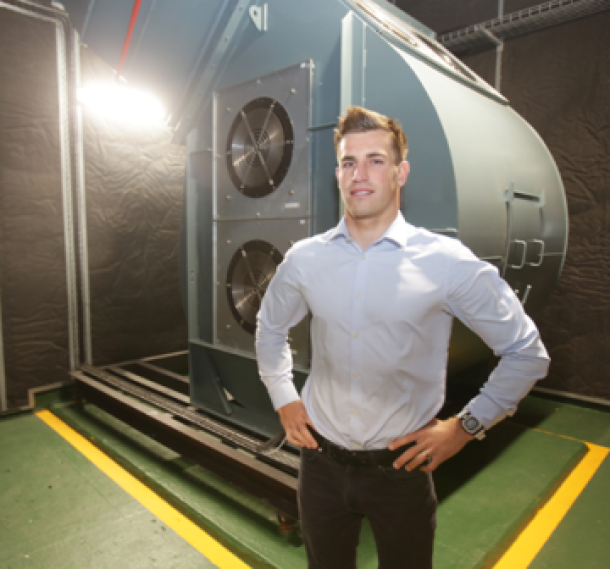
Pick n pay upcycles air-conditioning systems, s...
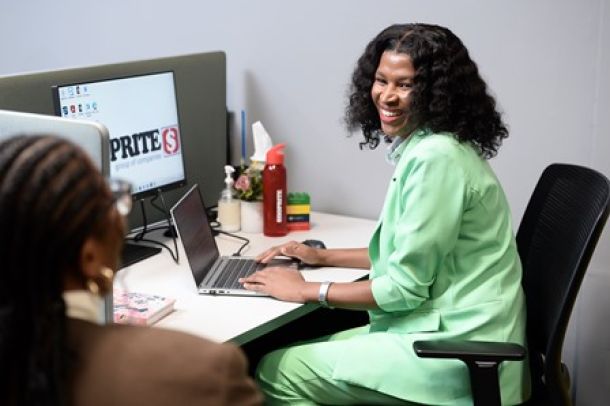
Shoprite Group opens pathways to job opportunit...
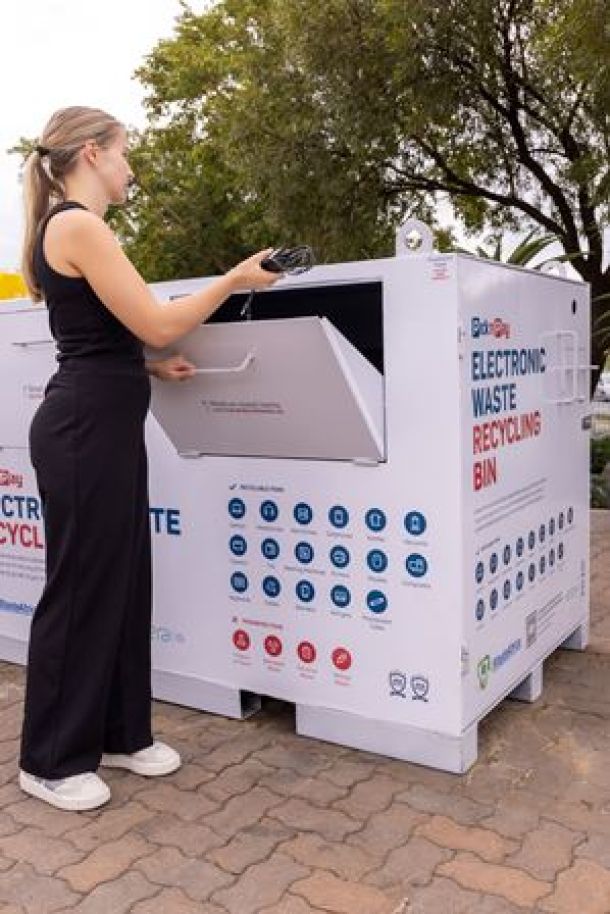
Pick n Pay empowers shoppers in the fight again...
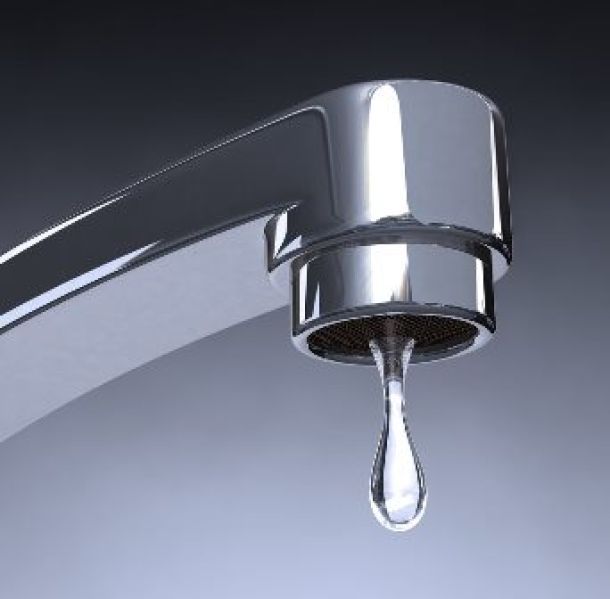
Massmart implements early leak detection techno...
